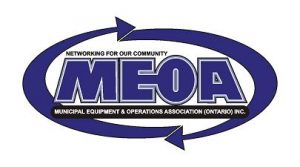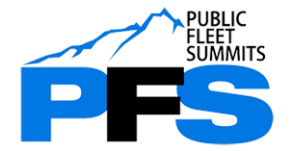

MEOA AGM, Trade Show and Public Fleet Summit
April 9-11, 2018
Nottawasaga Inn & Resort, Alliston, ON
Register @ www.meoa.org
2018 PFS Agenda Topic Descriptions
The Financial Side of Fleets
Public agencies own vehicles and equipment valued in the millions of dollars. Fleet professionals are now expected to operate more like a business that heavily focuses on asset and financial management. In this session you will be introduced to Generally Accepted Accounting Principles and their background, basic governmental accounting concepts, fund accounting, capital assets, expense budgets, revenue budgets, and a capital replacement fund. This session sets the stage for two subsequent sessions: Breaking Down and Understanding Your Fleet Rental Rates and Defending Your Fully-Burdened Shop Rate.
Dave Seavey, CAFM, former Fleet Management Director for the City of Seattle
Breaking Down and Understanding Your Fleet Rental Rates
Whether you are responsible for promulgating your public agency’s fleet rental rates, or they are done by your finance team, it is important that fleet staff understand how to calculate rates in accordance with best industry fleet management practices. Learn how to correctly calculate billable hours, allocate expenses, and compute fleet rates. You will leave with a better understanding of how to calculate fleet capital replacement rates including the methodology behind establishing fleet rental rates. This presentation is a must-see for current and aspiring fleet managers, public works directors, and finance professionals.
Dave Seavey, CAFM, former Fleet Management Director for the City of Seattle
Contract Purchasing
Increase your awareness of the benefits of buying through cooperative purchasing. This session describes how to simplify the procurement process, avoid duplication, receive national volume discounts, and gain the ability to choose high-quality, high-value products as opposed to lower quality, low-bid responses. Learn how you can save time and money through a legal purchasing pathway to high-quality solutions provided under all contracts.
NJPA Representative
Getting the Most out of Your Fleet Management Information System
If you were to ask PFS Speakers what is one of the most important aspects of running an efficient and effective fleet operation we would resoundingly reply, “A robust Fleet Management Information System (FMIS) that is being operated to its fullest capacity.” It is critical to your operation that you are able to produce data and information to guide you and your customers to make sound fleet decisions. In this session you will learn how to attain FMIS support from your upper management and Information Technology Department, evaluate fleet systems that meet your needs and have the capability to grow as your needs increase, and how your FMIS assists the fleet manager and organization in making decisions backed by convincing data and supporting reports.
Sam Lamerato, CPFP, retired Superintendent of Fleet for Troy, MI
How GPS and Telematics will Improve Your Fleet Operations
In order for fleet professionals to effectively manage public fleets with assets valued in the millions of dollars, we must have the necessary technology and tools available to us. Information gathered from GPS and telematics during fleet operations is now transmitted back to fleet operations’ offices to improve maintenance and lower operating costs. In this session you will learn the benefits of a GPS system beyond the physical location capabilities, how to use data to make your fleet more efficient, and how you can reduce downtime by identifying and reporting vehicle/equipment component alerts or failures during operation.
Sam Lamerato, CPFP, retired Superintendent of Fleet for Troy, MI
Not Your Father’s Auction – Merging Technology and Vendor Insight to Ensure Transparency and Accountability in Your Surplus Program
Auction technology is readily available and the number of providers has proliferated in recent years as more and more fleets utilize online auctions as all or part of a remarketing strategy. Gain a local, boots on the ground perspective from an experienced national company about a winning formula.
Technology + Insight = Success.
GovDeals Representative
Providing Visibility to Achieve Efficient Fleet Operations
Learn from one of the leading supplier of telematics to government fleets how their solutions can transform your operation. Fleet professionals manage government fleets that require more insight into their operations in order to cut costs and build or maintain a positive image of their fleet. Learn how GPS Telematics Solutions provide the visibility needed to tackle fleet professionals’ most costly challenges and reward employees for a job well done.
GPS Insight Representative
Fleet Replacement Strategies
Fleet managers everywhere list the timely replacement of aged vehicles and equipment as one of their top challenges. Dwindling cash resources and agency competing projects make it easier for executives and councils to say, “Just extend the assets lifecycle and run them for a few more years.” In this session you will learn the importance of an effective fleet replacement program including establishing replacement criteria, developing a replacement budget, how to select units to be replaced, and the optimal time to salvage municipal vehicles and equipment.
John Hunt, CPFP, retired Fleet Manager for the City of Portland, OR
Supply Chain Management and Technician Training Solutions
All fleet managers understand how critical reducing downtime relies on the timely delivery of preventive and repair parts. Learn how industry-leading professionals can partner with your organization to manage your inventory to meet on-demand parts requests in record time to keep your technicians working instead of waiting for parts. Additionally, discover how NAPA Technical Training can provide automotive and heavy-duty service and repair training to technicians to keep your fleet operating at its maximum potential.
NAPA/IBS Representative
Fleet Forum – Open Discussion on Regional Fleet Issues
This interactive panel discussion is designed to allow all attendees to freely discuss fleet problems and issues unique and common to fleet organizations within your geographical region. Any fleet topic is fair game for discussion! Understanding the root causes of problems is always the first step in seeking solutions to solving them.
Panel: Sam Lamerato, John Hunt, and Dave Seavey
Using Technology to Better Manage Your Fleet
Today’s government fleet managers must deal with shrinking budgets, government mandates regarding fleet size and utilization, and aggressive goals to reduce greenhouse emissions. Verizon Telematics provides the tools and data needed for busy fleet managers to understand and effectively manage the many aspects of their fleet’s performance. Learn how their technology leads to achieving fleet efficiency goals, lowering greenhouse emissions, and saving time and money.
Verizon Telematics Representative
How to Attract and Retain Quality Fleet Professionals
The skills needed to manage, maintain and repair today’s municipal fleets have evolved. Fleet professionals need to possess and/or acquire a variety of management, information technology, financial, and technical expertise to ensure their fleet is ready to serve and stay competitive. In this session you will learn how to recruit the management, support staff and technicians needed to build a winning team, create a positive workplace to retain and motivate your quality employees, and develop a Succession Plan.
Sam Lamerato, CPFP, retired Superintendent of Fleet for Troy, MI
Defending Your Fully-Burdened Shop Rate
Fleet managers use their shop labor rates to compare how competitive they are with commercial repair facilities and dealerships that provide identical repair services. In order to accurately make this comparison fleet managers must develop a fully-burdened rate – the hourly labor cost to employ a worker for the hours he or she actually works – which includes wages and the “burden” of the additional costs. In this session you will learn how to calculate direct and indirect time, properly calculate a
fully-burdened shop rate, the common mistakes made when calculating these rates, and how to determine when to outsource repairs.
Sam Lamerato, CPFP, retired Superintendent of Fleet for Troy, MI
Emerging Technologies – Solution’s for Today’s Challenges Facing Regional Fleet Managers
This session consistently has been noted as one of the most informative and educational events at each PFS. Learn directly from the leading vendors on how their technology and solutions can transform your fleet. Spend quality time in small groups during a fast-moving “speed dating” session with the experts in our industry.
Public Fleet Industry-leading Vendors
How to Improve Your Vehicle and Equipment Maintenance Program
Your entire fleet operation hinges on the effectiveness of your Vehicle and Equipment Maintenance Program. An effective program increases customer service and satisfaction while reducing downtime, unscheduled repairs, repair frequency, and operating costs. In this session you increase your knowledge on regarding asset management, the importance of a comprehensive Repair and Preventive Maintenance (PM) Program, PM program objectives, and the key performance measures used to track program performance.
John Hunt, CPFP, retired Fleet Manager for the City of Portland, OR
Promoting a Safe and Healthy Work Environment
Two main elements are required to develop an effective Fleet Safety Program designed to create an accident-free environment. First, we must create a “safety culture” where all staff considers the safety of each other in their organization as their top priority – even over the completion of everyday tasks. Second, we must implement a Fleet Safety Program that focuses on the importance of shop safety, identifies and corrects common safety hazards, and provides guidance on lowering your accident incident rating. In this session you will learn all these elements including tips and guidance on how to excel in a surprise third-party Safety Inspection!
John Hunt, CPFP, retired Fleet Manager for the City of Portland, OR
Parts Management Program Best Practices
The mission of any Parts Operation within a public fleet operation should simply be, “We provide high quality parts to our fleet operation in the quickest means possible to reduce vehicle downtime to allow our customers to serve our citizens.” In this session you will learn best practices and performance measures that contribute to managing an efficient Parts Operation. You will learn how to establish an effective Parts Room layout, physical security, inventory control best practices, how to properly calculate your parts markup, how to manage consumables, identifying and controlling obsolescence, parts warranty, core management, performance measures and more!
Dave Seavey, CAFM, former Fleet Management Director for the City of Seattle

